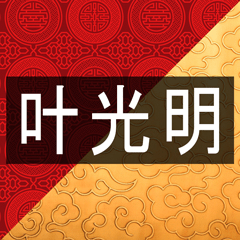The Director's Blog
Changes Taking Place in Shanghai
From the start of April Shanghai entered a “phased lockdown” as it confronted the country’s worst-ever coronavirus outbreak. The lockdown brought the lives of the city’s 25 million residents to a grinding halt.
There is a significant phenomenon which is a direct result of Shanghai’s lockdown - the rise of community WeChat groups. These groups brought together neighbours to help each other in a city notorious for its lack of neighbour interaction. One western writer commented: “Relations have turned from chilly and distant (the unfortunate default in this city) to warm and helpful. I’ve honestly never felt closer to my neighbours. We’re just pulling together to make sure we all get food, can take care of our kids and pets, etc. When the one household had a positive case, no one in the building WeChat group reacted angrily. I saw nothing but positive support.”
The groups help each other to get food. “With e-commerce and food delivery platforms unable to function normally, to say nothing of supermarkets, the task of distributing food supplies to locked-in residents seemed at first like it would fall to the municipal government. When it became clear that local officials had too much on their plates — and residents not enough on theirs — communities citywide had little choice but to fend for themselves.”
Another function is for the Internet savvy members to help those who do not understand the Internet. That is very critical in this type of situation, to know when Covid tests are required, or to understand other government instructions. “Within resident chat groups, there’s a class of volunteers who play a critical role as information screener, or ‘xinxi yuan'. Two of the problems people have faced during the lockdown are information anxiety and a lack of media literacy. Plugged-in volunteers sort through and summarise the large quantities of information published by media and government bodies, filtering through the endless waves of official messages and presenting the practicalities to residents, such as the schedule of that day’s COVID tests and material distribution. Their non-official status also allows them to respond to people’s queries more flexibly and effectively than official sources.”
The type of person who can take part in these groups and the matters discussed have widened considerably. “When someone joins a community group chat, they quickly find that the large group has sub-divided into many smaller ones, such as groups for buying food or organising medicine deliveries. During the lockdown, members of the residents’ groups realised that homeowners, tenants, and traders are all part of the same community, and they all share the same interests.”
Sun Zhe, a sociologist who has spent 15 years studying Shanghai community organisations, feels the rise of these WeChat groups will have brought in long-lasting change. “Prior to the lockdown, residents seldom interacted with their neighbours and the neighbourhood committee played a largely invisible role in their lives. The recent outbreak, which has highlighted the importance of community solidarity in an otherwise atomised city, is reshaping Shanghai society in real time. It signals a potentially profound change: one in which more people develop a sense of citizenship and participate in the governance of their society.”
Source: Sixth Tone (Cai Yineng) and others.
Pray for the situation in Shanghai and other places, not the least for those who have no access to the help such WeChat groups bring.
Pray that Christians would learn through service how to use these groups to witness to the Lord Jesus.
Pray for wisdom for the Chinese government in its Covid policies.

